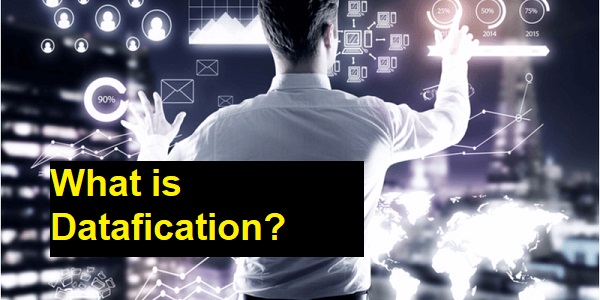
Datafication refers to the process of transforming various aspects of the world into data that can be analyzed and used to inform decision-making. This includes everything from personal behaviors and preferences to physical objects and environmental conditions. Datafication has become increasingly important in today’s digital age, where there is a growing abundance of data generated by people and machines.
The process of datafication involves collecting, analyzing, and interpreting data in order to gain insights and create value. This can involve a variety of techniques, such as machine learning, data mining, and predictive analytics. Datafication has the potential to transform many industries, from healthcare and finance to retail and manufacturing, by enabling more informed decision-making and providing new insights into customer behavior and market trends.
However, datafication also raises concerns about privacy and security, as well as issues related to data bias and the potential for misuse of data. As a result, it is important for organizations to use data ethically and responsibly, and to be transparent about their data collection and analysis practices.
Datafication has become increasingly prevalent due to the growth of digital technology and the internet. With the proliferation of sensors, smart devices, and other internet-connected devices, vast amounts of data are being generated every day. This data can be used to better understand human behavior, improve business operations, and inform public policy decisions.
One example of datafication is the use of wearable technology to track and analyze personal health data. This can include information on physical activity, heart rate, and sleep patterns. By analyzing this data, healthcare providers and individuals can gain insights into overall health and identify potential health risks.
Another example of datafication is the use of data analytics in finance. Financial institutions can use data to better understand customer behavior, identify potential fraud, and improve risk management. Data analytics can also be used to inform investment decisions and predict market trends.
Datafication is also transforming the way we interact with the world around us. For example, smart cities use data to monitor and optimize traffic flow, reduce energy consumption, and improve public safety. Similarly, precision agriculture uses data to optimize crop yields and reduce waste.
While datafication has the potential to provide many benefits, it also raises important ethical and social questions. These include issues related to privacy, security, and data ownership, as well as concerns about data bias and the potential for discrimination. It is important to carefully consider these issues and to develop policies and regulations that protect individuals while still allowing for the benefits of datafication to be realized.
FAQs
What is the difference between data and information?
Data refers to raw facts and figures that are collected and stored, while information is the result of analyzing and interpreting that data to extract meaning and insights. Data is often unorganized and meaningless until it is analyzed and processed into useful information.
What is big data?
Big data refers to extremely large datasets that are too complex to be processed using traditional data processing methods. Big data often includes a variety of data types, such as structured and unstructured data, and requires advanced analytics tools and techniques to extract insights.
What is data mining?
Data mining is the process of analyzing large datasets to discover patterns, relationships, and trends. Data mining techniques can be used to extract useful information from complex datasets, such as customer behavior data or financial transaction data.
What is machine learning?
Machine learning is a type of artificial intelligence that involves training computer algorithms to recognize patterns in data and make predictions or decisions based on that data. Machine learning algorithms can be used in a variety of applications, such as image recognition, speech recognition, and predictive analytics.
What is data privacy?
Data privacy refers to the protection of personal and sensitive data from unauthorized access, use, or disclosure. Data privacy regulations, such as the European Union’s General Data Protection Regulation (GDPR), aim to protect individuals’ privacy rights by regulating the collection, storage, and use of personal data by organizations.